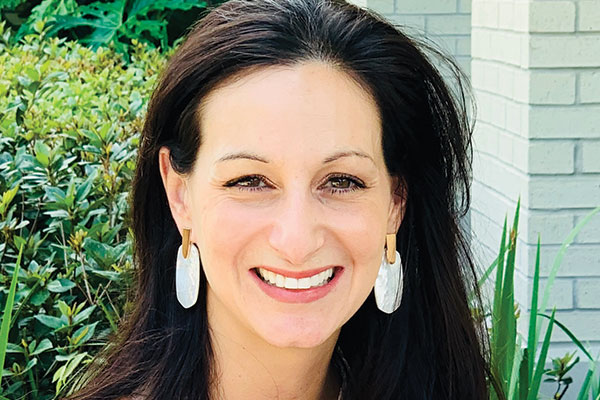Surviving and Thriving in the Valley of Cancer
by Ashley Gravois, LCSW
We’ve all been there … in the valleys of life. Some more than others. My family is in the valley right now. We have been touched by that dreaded malady – cancer.
Our pastor told my husband and me early on in our cancer journey that you meet God in the valleys and not on the mountaintop. Being told you may not have long to live brings you face to face with God in a way that many may never experience.
Being in the valley is the ultimate test of faith. You watch the world go on around you, and you wonder if anyone realizes the pain you are feeling. You wonder, why me? Why now? This is a natural reaction; however, you must not dwell in this place for very long. For some unknowable reason, it is you. And it is now.
How do we survive these valleys? Even more, how do we not just survive but come out stronger, thriving on the other side? Here are a few things that have helped my family get through the valley of a cancer diagnosis and treatment.
Find your people.
Finding a few people with whom you can open up and be completely vulnerable is immensely helpful. You’ll quickly learn which of your friends and family members are capable of really listening to you and going to the depths of the valley with you. Not everyone is capable of this, and that’s OK. There will be those in your life who are merely seekers of information and those who are truly there for you. Lean on the latter, and don’t feel like you have to quench everyone’s thirst for information. This is your journey; you are in charge of who will walk with you.
Just keep going.
Getting through each day will take every ounce of your being, and that is OK. You will put one foot in front of the other and just keep going. At the end of the day, let the unchecked to-dos fade from your mind and commend yourself for getting through another day. You survived! That is enough.
At the end of the day, let the unchecked to-dos fade from your mind and commend yourself for getting through another day. You survived! That is enough.
Ask for help!
After a cancer diagnosis, you will likely have people asking how they can help. Choose a few tasks you are OK with someone else doing, and let someone else do them for you. Maybe your dog needs walking and you just don’t have the energy. The piled-up dishes and laundry are a daunting task. Or planning and preparing meals is more than you can handle. Enlist your family and friends to help. Everyone has their strengths. Perhaps those who are unable to sit with you in your emotion would be great at handling some of these more practical duties.
Feel your feelings.
When we’re in the valley, we feel a multitude of emotions. Try to have zero expectation of how you should feel. Be gentle with yourself. Allow yourself to feel, cry, scream, be angry. But also find a healthy way to work through those feelings.
Celebrate the small victories.
Look for the high points that exist within the valley. This may seem impossible, depending on what you are facing. However, it is crucial that you take time to celebrate even the smallest of victories. You got up, got dressed, and made it through another day – victory! Your lab values are within normal range – celebrate! You remembered a friend’s birthday, made it to the end of your child’s soccer match, got eight hours of sleep, asked someone for help, shared your feelings with a family member – all of these things are worth celebrating. You are in an exceedingly difficult place, but you are still standing. This is something to celebrate! This is a high point within the valley.
As the days go by and you continue to survive, life will take on a brand-new meaning. You will begin to not just survive but thrive!
Ashley Gravois is a social worker who took on the role of caregiver for her husband when he was diagnosed with cancer in 2019.
This article was published in Coping® with Cancer magazine, March/April 2020.
Everyone has a unique story to share. Do you want to share your cancer caregiver story?
Here are our submission guidelines.


